15 years one-stop China custom CNC machining parts factory
 267 |
Published by VMT at Aug 03 2024
267 |
Published by VMT at Aug 03 2024
Fasteners play a crucial role in connecting two or more parts in various fields such as machinery, construction, automotive, and aerospace. They ensure stable connections between components through mechanisms such as friction, locking, or welding, resisting external forces and maintaining structural integrity and functionality. This article explores the different types of fasteners and their applications, while also discussing materials, surface treatments, and selection principles to provide comprehensive guidance for professionals in the CNC machining sector.
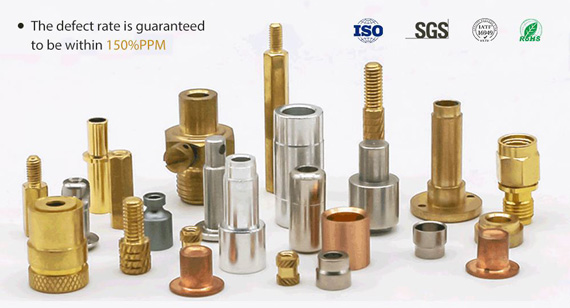
Fasteners are metallic components used to connect or secure two or more parts. They achieve fastening through methods such as threading, riveting, or welding. Common fasteners include screws, bolts, nuts, rivets, washers, nails, and anchor bolts. Each type has specific designs, materials, and applications to meet various connection needs.
Screws
Screws are fasteners with threads that typically are driven into pre-made holes by rotation to connect or secure parts. Different types include:
Machine Screws: Used extensively in machinery, requiring high strength and precision.
Deck Screws: Designed for outdoor environments with superior weather resistance and corrosion protection.
Sheet Metal Screws: Suitable for fastening thin metal sheets, often featuring self-tapping or self-drilling designs for ease of installation.
Drywall Screws: Specifically designed for fastening drywall or lightweight wall materials, requiring lower insertion torque.
Hex Head Screws: Designed for use with wrenches or other tools, suitable for high-torque applications.
Locking Screws: Feature special designs (such as locking washers or thread coatings) to prevent loosening, ideal for vibration-prone environments.
Self-Drilling Screws: Combine drilling and fastening functions, simplifying installation for metals and plastics.
Wood Screws: Designed for wood, with deeper threads and sharp tips to penetrate and secure wood effectively.
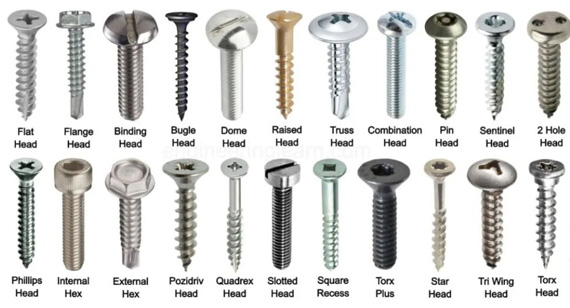
Bolts
Bolts are fasteners with threads at both ends, typically used with nuts to achieve fastening. Types include:
Carriage Bolts: Feature a square or hex head and are used in applications requiring frequent disassembly.
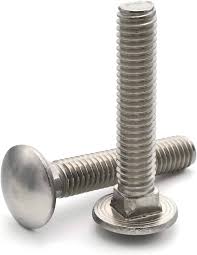
Internal Hex Bolts: Designed with an internal hex head for use with hex wrenches, ideal for confined spaces.
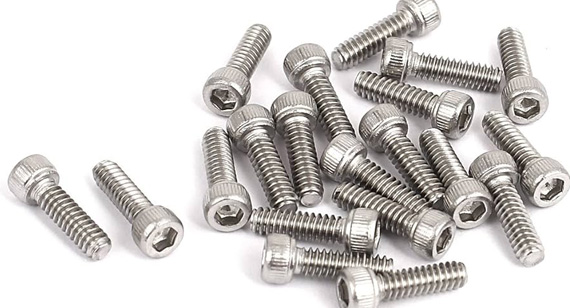
Plow Bolts: Specially designed for agricultural machinery to withstand high torque and tensile loads.
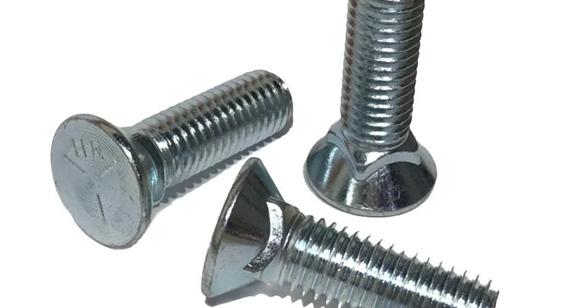
Flange Bolts: Used with flanges, providing a larger contact area for connections in high-pressure and high-temperature environments.
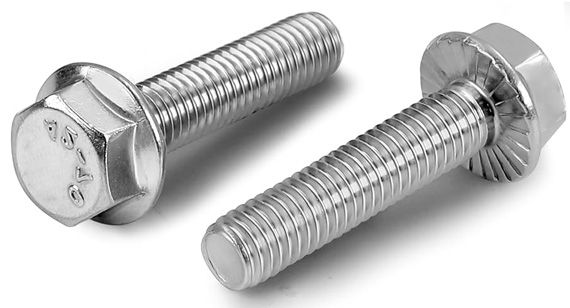
Foundation Bolts: Fixed to machinery bases with high strength and corrosion resistance.
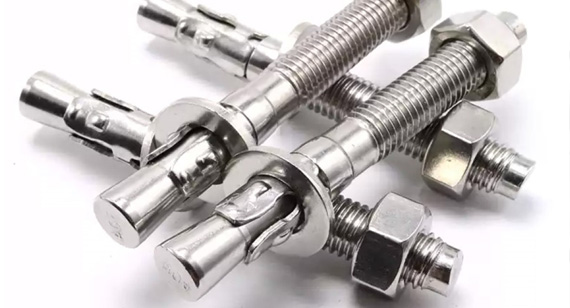
Double-Ended Bolts: Threaded at both ends with a smooth center, used for simultaneous fixation on both ends.
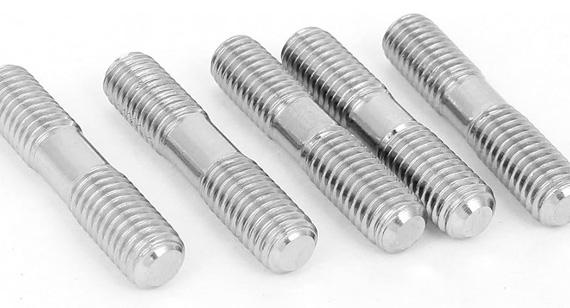
Shoulder Bolts: Feature a shoulder beneath the head to limit nut movement and prevent over-tightening.
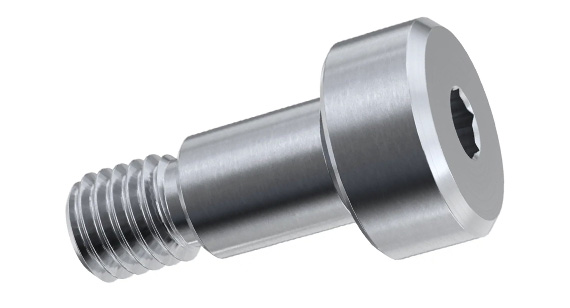
Eye Bolts: Include a loop on top for lifting and securing heavy objects.
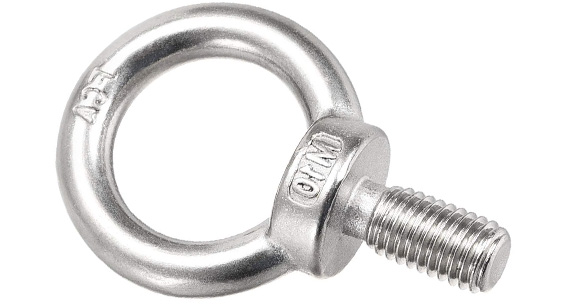
U-Bolts: Shaped like the letter "U," used for securing pipes, cables, and other components.
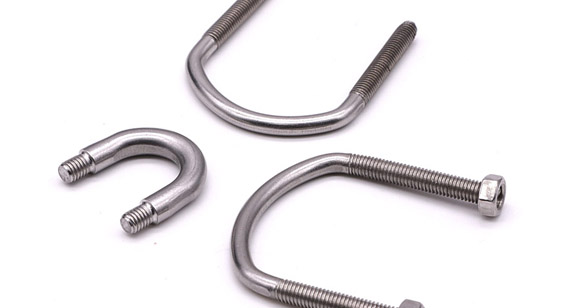
Nuts
Nuts are fasteners that work with bolts or screws, tightened or loosened by rotation. Types include:
Wheel Nuts: Designed for vehicle wheels with high strength and locking features to ensure secure attachment.
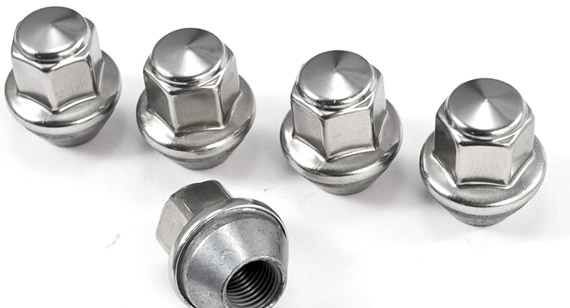
Cap Nuts: Feature a protective cap over the threads to prevent damage and enhance appearance.
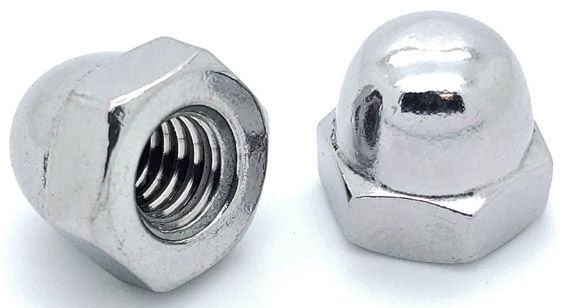
Flange Nuts: Include a flange to increase contact area and improve fastening force for heavy-load connections.
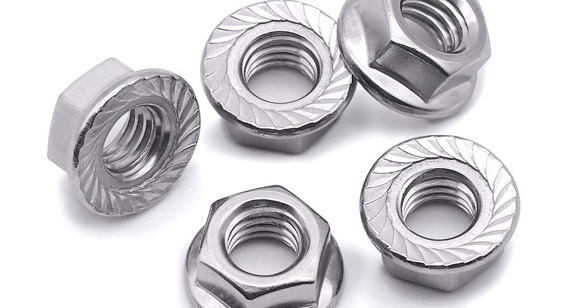
Coupling Nuts: Connect two rotating parts with special locking mechanisms to prevent loosening.
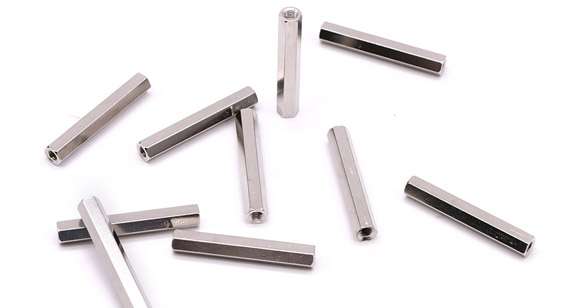
Locking Nuts: Feature special designs (such as locking washers or thread structures) to prevent loosening.
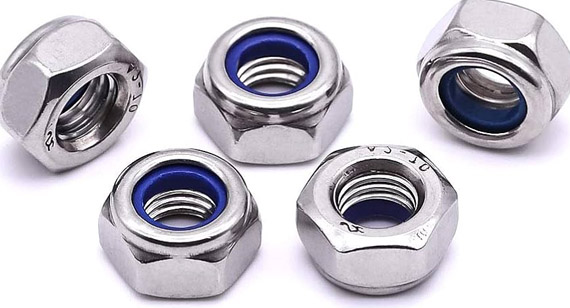
Weld Nuts: Welded directly onto components without needing pre-drilled holes, simplifying installation.
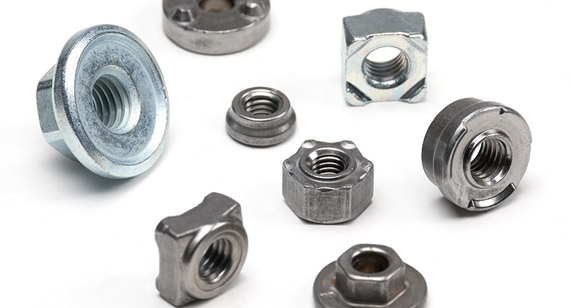
Hex Nuts: The most common nut type, used with various bolts and screws.
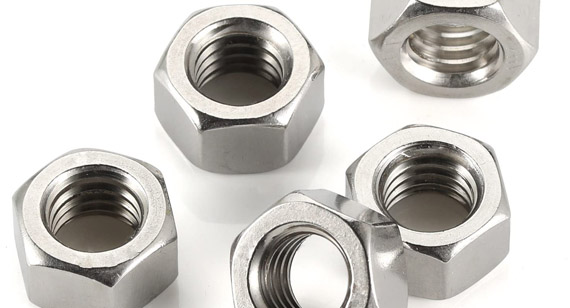
Rivets
Rivets fasten parts without requiring threads. Types include:
Common Nails: Includes round head, flat head nails, used in general woodworking and packaging.
POP Rivets: Designed for plastic parts with a pressing mechanism for secure connections.
Multi-Head Rivets: Feature multiple fastening points for enhanced strength in heavy-duty connections.
Tri-Fold Rivets: Automatically fold the head after riveting to increase fastening strength, commonly used for thin metal sheets.
Large Flange Rivets: With a large flange, suitable for connections requiring pressure distribution or increased contact area.
Box Nails: Typically used for securing boxes and packaging materials, with a long shaft and good penetration ability.
Flooring Nails: Designed for flooring installation, with strong gripping and pull-out resistance.
Roofing Nails: Used for attaching roofing materials like shingles or metal plates, requiring corrosion resistance and wind pressure resistance.
Framing Nails: Commonly used in wood framing or light steel structures for tight and stable connections.
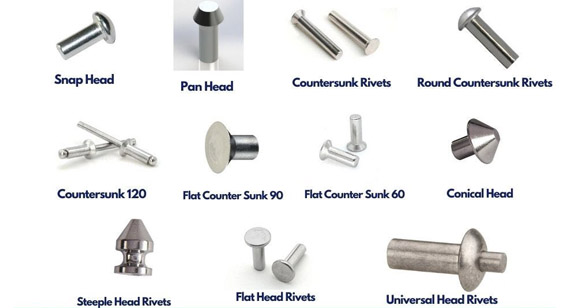
Washers are thin discs placed between fasteners to increase contact area, distribute pressure, prevent loosening, and provide sealing. Types include:
Flat Washers: Simple washers that increase contact area between bolts and nuts, preventing damage during tightening.
Spring Washers: Have spring properties to provide extra pre-tension and help prevent loosening.
Lock Washers: Feature designs (like serrated edges) that lock the fastener in place, offering additional locking effects.
Dock Washers (or Heavy-Duty Washers): Designed for heavy loads and vibration, with larger sizes and higher load-bearing capacity.
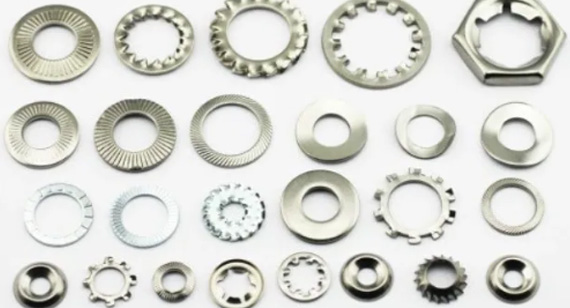
The choice of material for fasteners affects their performance, durability, and application range. Common materials include:
Steel Fasteners:
Known for high strength, good machinability, and cost-effectiveness. Standard grades include:
Grade 2 Steel: Used for low-stress connections with lower tensile strength and hardness.
Grade 5 Steel: Suitable for medium-strength connections in structural components and machinery.
Grade 8 Steel: High-strength steel for applications requiring substantial loads and stresses, such as heavy machinery and bridges.
Alloy Steel: Enhanced with elements like chromium, nickel, and molybdenum to improve strength, hardness, wear resistance, and corrosion resistance.
Stainless Steel Fasteners:
Valued for their corrosion resistance and aesthetic appeal. Common types include:
18-8 Stainless Steel (304 Stainless Steel): Widely used with good corrosion resistance and machinability.
Stainless Steel 410: Offers higher hardness and wear resistance but less corrosion resistance compared to 18-8 stainless steel.
Stainless Steel 316: Contains molybdenum for improved resistance to chlorides and other corrosive environments, suitable for marine and chemical industries.
Aluminum Fasteners:
Favored for their lightweight, corrosion resistance, and good thermal conductivity, suitable for aerospace, automotive, and electronics.
Copper Fasteners:
Known for excellent electrical conductivity, thermal conductivity, and corrosion resistance, ideal for electrical connections and marine environments.
Titanium Fasteners:
Recognized for high strength, low density, and excellent corrosion resistance, suited for extreme environments like aerospace and chemical industries.
Surface treatments enhance fasteners' corrosion resistance, appearance, and functionality. Common methods include:
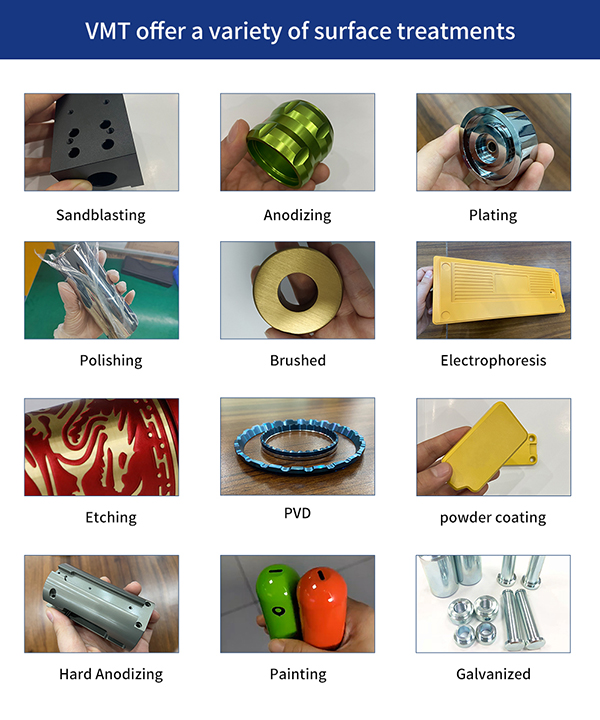
Transparent and Yellow Zinc, Blue Zinc: Electroplated zinc layers providing basic corrosion protection, with color variations as needed.
Chrome and Nickel Plating: Electroplated or chemical plating for bright, wear-resistant surfaces with enhanced corrosion resistance.
Gray Phosphating: Forms a phosphate film on the surface to increase wear resistance and lubrication, reducing friction during assembly.
Electroplated Zinc: Electrolytic deposition of a zinc layer for excellent corrosion protection.
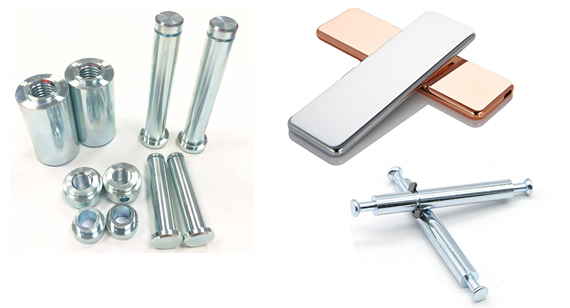
Brass and Bronze Plating: Plating or chemical treatments that provide a golden appearance and improved corrosion resistance.
Selecting the appropriate fastener is crucial for ensuring connection reliability and system performance. Consider the following factors:
Application Requirements: Identify the environment, load requirements, and expected lifespan to choose the right material and specifications.
Thread Type: Select the appropriate thread type and size based on the connection materials and hole dimensions to ensure proper fit and fastening.
Building Materials: Consider the hardness, strength, and thermal expansion of building materials to ensure compatibility with fasteners.
Exposure Conditions: Assess environmental conditions such as moisture, corrosion, temperature extremes to choose suitable surface treatments and corrosion resistance.
Ease of Installation and Maintenance: Consider installation convenience and maintenance needs, such as whether frequent disassembly is required, and choose fasteners with locking features if necessary.
Cost-Effectiveness: Evaluate the cost of materials, manufacturing, and transportation to select the best value product without compromising performance.
Compliance and Standards: Ensure fasteners meet industry standards and regulations (such as ISO, ASTM, DIN) for quality and safety.
Fasteners serve as critical components for connecting machinery, construction, automotive, aerospace, and other fields. They come in a variety of types and have a wide range of applications. Understanding the different types of fasteners and their characteristics, as well as mastering the principles of manufacturing materials, surface treatment, and selection, is essential for ensuring connection quality and enhancing system performance. With the continuous development of CNC machining technology, the application of advanced manufacturing techniques such as custom CNC machining and CNC prototype machining has provided higher precision, efficiency, and flexibility in fastener manufacturing, further promoting the progress and development of the fastener industry.

What are the 7 types of fasteners?
Fasteners mainly include screws, bolts, nuts, rivets, washers, pins, and anchors. These types have their unique characteristics and application scenarios based on differences in shape, purpose, and material.
What are the applications of fasteners?
Fasteners are widely used in various fields such as machinery, construction, automotive, aerospace, electronics, furniture, etc. They ensure the stability and functionality of the overall structure by connecting and fixing parts.
What are the 3 types of mechanical fasteners?
Mechanical fasteners can mainly be divided into threaded fasteners (such as screws, bolts, and nuts), riveted fasteners (such as rivets), and pin fasteners (such as cylindrical pins, conical pins, etc.). These types achieve connection and fixation between parts through different fastening mechanisms.
What is the strongest type of fastener?
The strongest type of fastener depends on the specific application scenario and performance requirements. In situations requiring extremely high loads and stresses, such as heavy machinery and bridge construction, bolts and nuts made of high-strength alloy steel are often considered the strongest option.
What is the most commonly used form of fastener?
The most commonly used form of fastener varies by industry and application. However, in general machinery and construction fields, hex head bolts and nuts are one of the most commonly used forms of fasteners due to their simple structure, easy installation and removal, and good fastening performance.
What are the types of permanent fasteners?
Permanent fasteners usually refer to fasteners that are difficult or impossible to disassemble once installed. These fasteners include welded nuts, rivets (especially self-locking rivets), and some specially designed threaded fasteners that achieve permanent connections through welding, riveting, or special locking mechanisms.
What are the classifications of fasteners?
There are various ways to classify fasteners, which can be based on shape, purpose, material, connection method, and other factors. Common classification methods include classifying by shape into screws, bolts, nuts, etc.; by purpose into structural fasteners, transmission fasteners, sealing fasteners, etc.; by material into steel fasteners, stainless steel fasteners, aluminum fasteners, etc.; by connection method into threaded connection fasteners, riveted fasteners, welded fasteners, etc.
